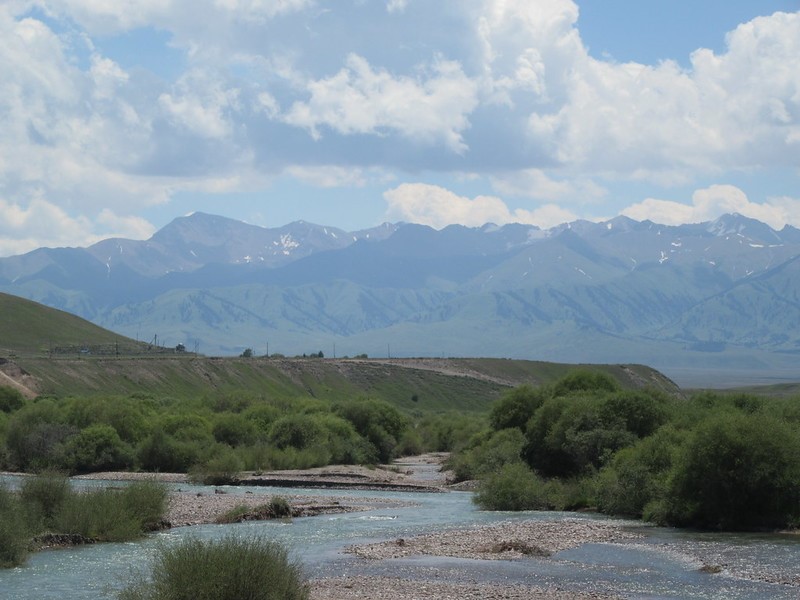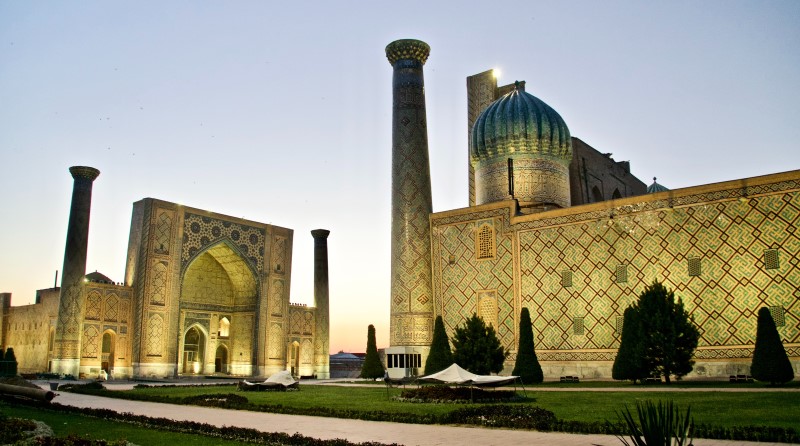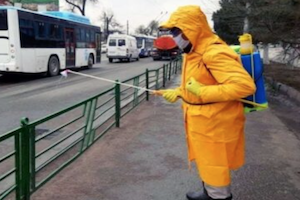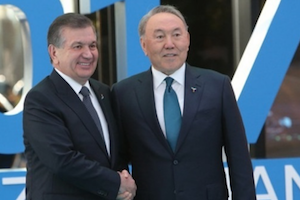The Sokh Enclave: A Breakthrough in Central Asian Cooperation
By Farkhod Tolipov
April 21, 2021, the CACI Analyst
April 1, 2021, saw the reopening of the long-awaited road connecting the Uzbek Sokh enclave, located within Kyrgyzstan, with Uzbekistan’s mainland, allowing free movement of cars and pedestrians. This became possible after the visit of Kyrgyzstan’s newly elected President Sadyr Japarov to Uzbekistan in March 2021, during which the two states announced their determination to eliminate all remaining border problems between them. Uzbekistan and Kyrgyzstan demonstrated and confirmed their relationship as strategic partners and provided a new example of Central Asian cooperation.

The Karabakh Ceasefire and Regional Economic Projects
By Orhan Gafarli
January 28, 2021, the CACI Analyst
The Second Karabakh War lasted for 44 days, ending on November 10, 2020 with the 9-point ceasefire agreement agreed by Azerbaijan and Armenia under Russian mediation. According to the ceasefire, the Armenian side will withdraw from the seven regions surrounding Nagorno-Karabakh; a Russian Peace Force will control the Lachin corridor connecting Karabakh with Armenia and Russia’s Border Service (FSB) will supervise the highway between Azerbaijan and Nakhichevan. Turkey is also a party to ensuring compliance with the ceasefire, setting up observation points and cooperating with Russia regarding negotiations between the parties. The end of the war might eventually bring the parties to a peace agreement and allow for regular overland transport between Azerbaijan, Armenia and Turkey. This perspective could help revive the Silk Road between East and West in the South Caucasus.

Central Asia's Integration Takes One Step Forward, One Step Back
By Farkhod Tolipov
January 26, 2021, the CACI Analyst
The third Consultative meeting of the five presidents of the Central Asian countries was scheduled for October 2020 to be held in Bishkek, the capital of Kyrgyzstan. However, it was postponed to take place in another country – Turkmenistan in 2021. This surprising delay raised concern about the reluctance of Central Asian leaders to reinvigorate the process of regional integration and about invisible geopolitical forces that slow it down. Explanations for the delayed meeting unconvincingly referred to the COVID-19 pandemic and its coincidence with disturbances in Kyrgyzstan in a situation where serious steps toward regional integration are urgently needed.

Post-COVID-19: Challenges and Opportunities for Central Asia
By Bakhrom Radjabov
June 4, 2020, the CACI Analyst
Since January, COVID-19 (coronavirus) has reached the level of a global pandemic. At first, some Central Asian republics seemed to be virus-free islands with zero confirmed infection cases. Afghanistan confirmed its first COVID-19 case on February 24, followed by a closure of the borders with other Central Asian republics. Kazakhstan discovered its first cases of COVID-19 on March 13, and Uzbekistan on March 15. Kyrgyzstan confirmed its first case on March 18 whereas Tajikistan did not report any cases until April 30. Before this date, the country allowed mass gatherings, including the celebration of Navruz, which was cancelled by other Central Asian governments. Turkmen authorities have so far not officially reported any cases of COVID-19 in the country.

Regional Cooperation in Central Asia: Relevance of World Models
By Svante E. Cornell and S. Frederick Starr
December 4, 2018, the CACI Analyst
Central Asian states are embarking on a new effort to build regional cooperation. In March 2019, the second yearly summit of Central Asian leaders will be held in Tashkent. Discussions are under way to provide structure to this newfound regionalism. Central Asians can build on a relatively rich experience of regional cooperation two decades ago, which culminated in the Central Asian Cooperation Organization (CACO). As they take this experience to new levels, they do not need to reinvent the wheel: an overview of other global models of regional cooperation shows how other states in similar situations – particularly Southeast Asian and Nordic countries – have managed to build long-term sustainable regionalism in difficult geopolitical circumstances.



